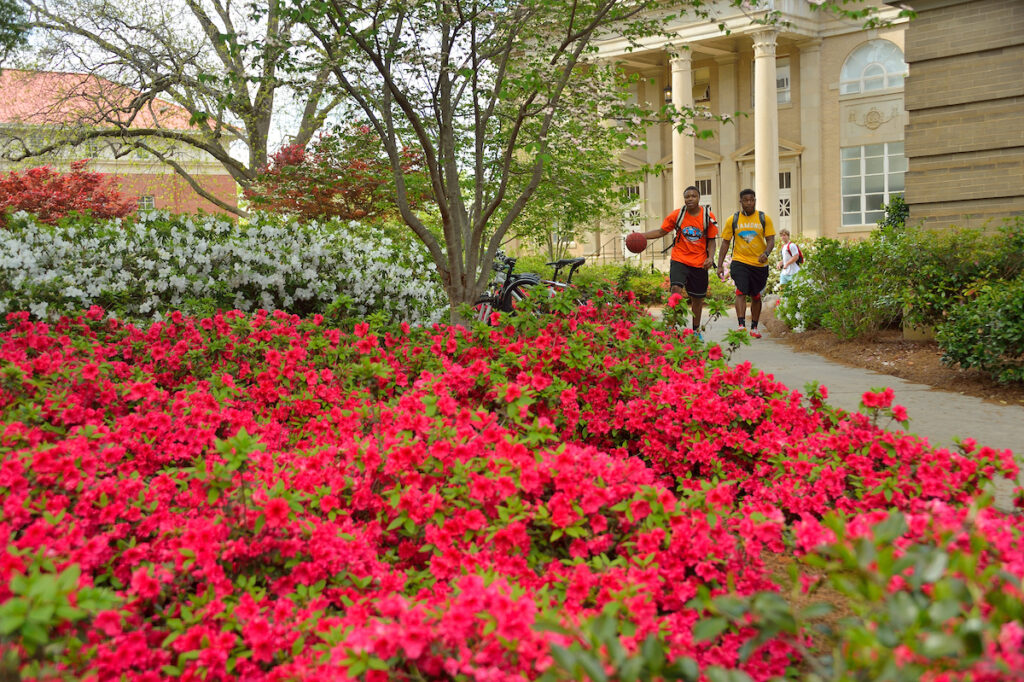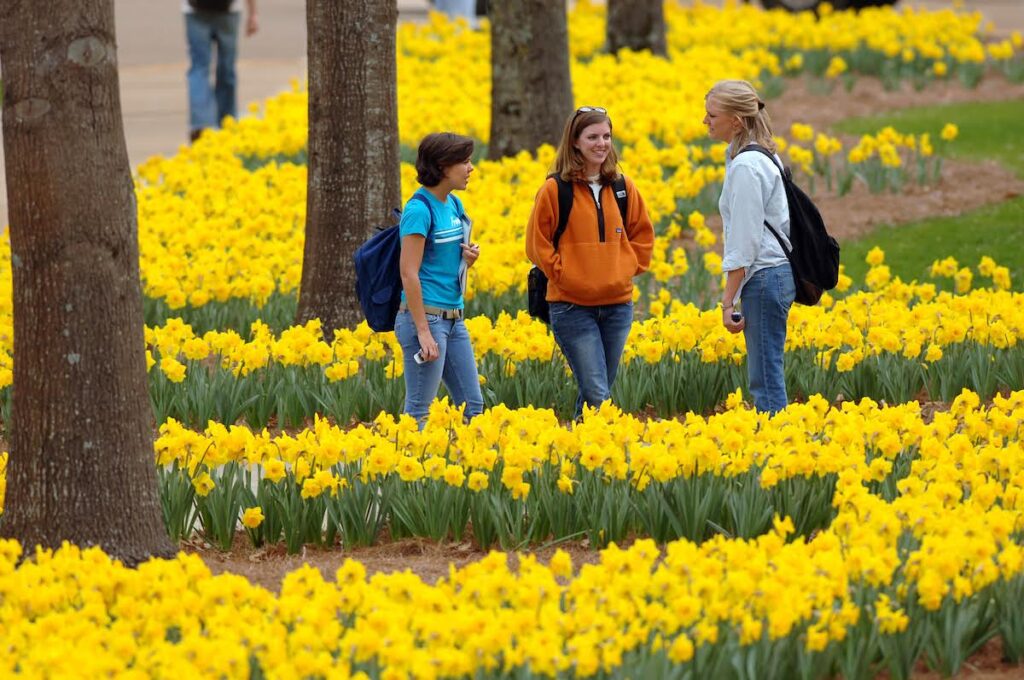
On May 1, 2000, with a hot, dry summer before him and a football season looming ahead in the fall, Jeff McManus started at Ole Miss, as Director of Landscape Services. Over the past seventeen years, his landscaping crews have achieved a record that the school’s football program might envy. The landscape that they tend – a thousand acres of leafy groves and sun-baked lawns, tramped across each day by 19,000 students and 3,000 faculty – has twice been voted Best Maintained Campus by professional landscaping associations, and been hailed as the most beautiful campus by both the Princeton Review and by Newsweek.
McManus studied horticulture at Auburn University and learned his trade at the Grand Cypress Resort in Orlando. His new book, “Growing Weeders into Leaders,” is a manual on leadership and management, and it is studded with quotations from business leaders and inspirational speakers, but it never loses sight of McManus’s essential mission. That task was defined by the chancellor who hired him, Bob Khayat: “I want a five-star campus,” Khayat specified.
Ole Miss groundskeepers had waited for work orders to do routine tasks like mowing and trimming; McManus established a schedule and worked to ensure it was kept. He relocated benches and garbage cans so that mower teams could sweep cleanly across lawns and the Grove. He practiced ergonomics: landscapers learned to wear both straps of their backpack leaf blowers, which increased blower power and reduced mechanical problems.
McManus started pruning trees in the Grove, which opened up vistas and drew compliments; “not only could people walk through the Grove without ducking but also the mower operators were no longer getting hit in the face with the limbs.”
The start of the workday moved from 7:30 a.m. to 6:00 a.m., so that work could be done before students and faculty began thronging the campus. McManus continued to learn from the man who hired him. Chancellor Khayat walked up to grounds staff, greeted them, talked to them, and stooped himself to pick up litter or pull up invasive dallisgrass – “weeding by example.”
Most notably, McManus rewarded his staff. He trained them, bought them better equipment, got them better uniforms, honored them, and counted on their taking initiative. He took supervisors on trips to study other university campuses, from Vanderbilt to Auburn (with a side trip to Calloway Gardens).

McManus’s observations on landscaping ideas and operations repay consideration.
“Always create areas where people want to take photos. People appreciate those unique spaces, and they want to take that memory home with them.”
“Mowers are the workhorses of the modern-day campus landscape. They are used to mow grass in the summer, mulch leaves in the fall, and remove snow in the winter. When a mower breaks down, efficiency goes down.”

“The price of any property is set at the front entrance. . . . A property’s appearance says a lot about the leadership and value placed on the campus or on any organization. It tells parents a lot about how we value their children.”
In October 2014, a perfect storm of football passion bore down upon the University campus: a home game against top-ranked Alabama, with an ESPN GameDay program and a concert by Katy Perry. To the challenge of cleaning up after this event – and the detritus of Ole Miss’s upset victory included the goalposts – McManus, and his crews were more than equal. Two thousand garbage cans and 300 recycling bins had been set out beforehand, and hundreds of garbage bags were handed out to tailgating alumni. McManus sums up:
“Most home football games generate 60-70 tons of waste and recyclables. This game set a record of 90 tons. That is a lot of waste dispersed in a 100-acre area on campus. Our staff and the student’s groups we hired arrived at midnight to do their magic. Three hours later, the 90 tons of scattered waste had been neatly contained.”
McManus sees landscape work as a calling, and he sees it as part of his university’s mission – a dedication that he has led his mowers and pruners and irrigation men to share. His most telling quotation is from Martin Luther King, Jr.: “If a man is called to be a street sweeper, he should sweep streets even as Michelangelo painted, or Beethoven composed music or Shakespeare wrote poetry.” He sees his department’s work as part of his university’s mission, and rejoices when he finds himself preaching to a fervent choir.
“I knew the vision of cultivating greatness was hitting home with our staff when a team member confessed to the group that he hated putting down pine straw in the shrub beds, but he did it because he might be helping to recruit the next Eli Manning, Patrick Willis, or Dexter McCluster.”
“Cultivating greatness” may be McManus’s favorite phrase. It is a boastful pun and an ambitious principle, and it has served the University well.
Allen Boyer is Book Editor for HottyToddy.com. He grew up on the Ole Miss campus; currently he lives and writes on Staten Island. His new book, “Rocky Boyer’s War,” a WWII history based on his father’s wartime diary, was recently published by the Naval Institute Press.
Recent Comments